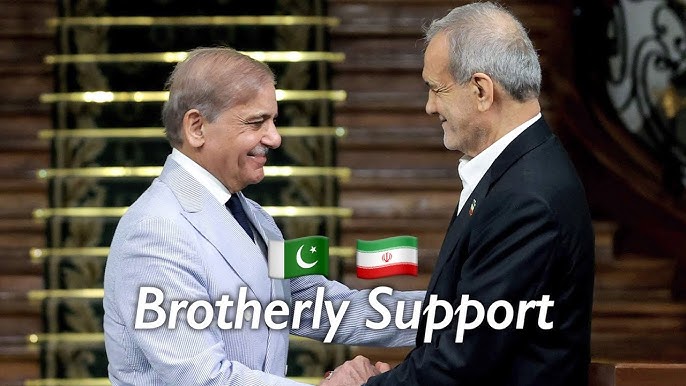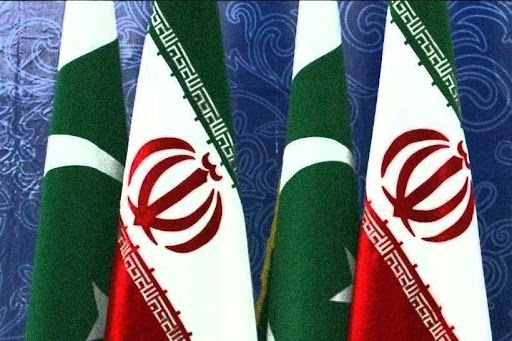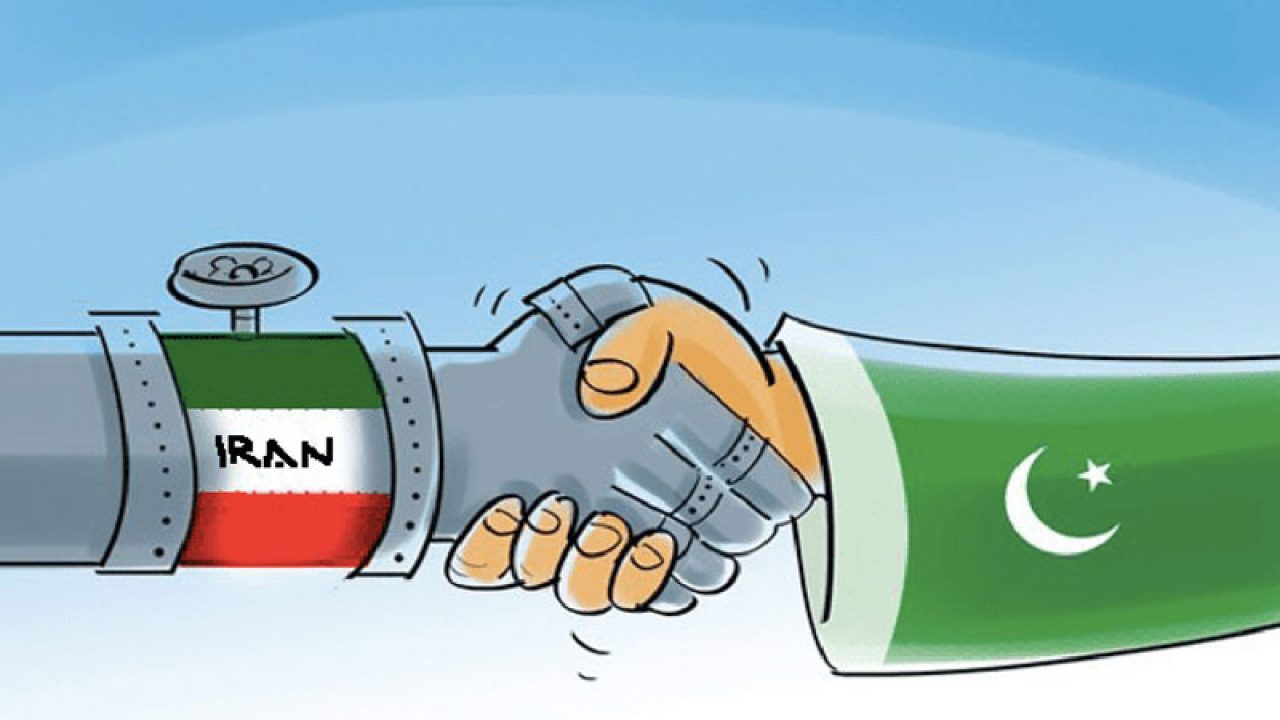
Pakistan Supports Iran
In a world where there are fluid alliances and fierce enmity, the Pakistani support for Iran’s civilian nuclear aspirations is more than just a diplomatic gesture. The step has strategic implications, with it being not just a shift in the nuclear discourse of the region but also having nuanced implications for Saudi Arabia and Israel. As Pakistan reaffirms its support for Iran’s non-military nuclear goals, it is important to perform a thorough analysis of the broader geopolitical importance.
Pakistan Supports Iran: Nuclear Ambitions and Alliances
The Middle East and the South Asian subcontinent have traditionally been nuclear-sensitive subregions. The balance of power remains fragile due to India’s established nuclear capability and Israel’s uncertain nuclear status. Beyond that, Pakistan’s support for Iran’s civilian nuclear program also poses a possible threat to the current nuclear order in the region. Although Pakistan asserts that its support is in civilian form, the move can endanger its traditionally intimate relationship with Saudi Arabia and also act as a warning message to Israel’s covert endeavours within the region.

Strategic Imperatives Underlying Pakistan’s Support
Those recent statements in Islamabad, echoing the declaration of support for Tehran’s right to peaceful nuclear development in accordance with the provisions of the Non-Proliferation Treaty (NPT), were not unexpected. Pakistan’s support for Iran’s civilian nuclear program is rooted in strategic interests. Iran, an old neighbour and a fellow Islamic republic, shares cultural, economic, and ideological affinities with Pakistan. Such support aligns with Pakistan’s foreign policy interest in regional autonomy, especially in the context of increased Indo-Saudi collaboration and Israeli espionage efforts.
Message to Saudi Arabia: Change Your India Policy
Pakistan and Saudi Arabia have enjoyed a robust relationship for decades, most visibly in defense and religious diplomacy. That warmth of the relationship has waned in recent decades, most acutely after Pakistan’s support for Iran’s civil nuclear program. This move serves as an implicit message to Riyadh, urging it to reevaluate its expanding defense and investment ties with India. Saudi investments into Indian infrastructure, oil, and defense sectors—and its ambiguity about Kashmir—have been rightfully considered by Islamabad.
By publicly championing Iran’s nuclear rights, Saudi Arabia has demonstrated diplomatic options beyond the Gulf monarchies. The Pakistani endorsement of the Iranian civilian nuclear program can thus be considered a foreign policy realignment to counterbalance its regional alignments and to push Riyadh to rethink its alignment with New Delhi.
Message to Israel: Hands Off Pakistan’s Business
Israel’s clandestine involvement in Operation Sandoor has sparked curiosity throughout South Asia and the Middle East. Intelligence sources, while not officially confirmed, suggest the deployment of Israeli surveillance drones and cyber expertise to support targeted strikes against militant hideouts.
A regional ally led the operation, with the aim of neutralising high-value insurgent threats that were destabilising border regions. Israel’s involvement underscores its expanding strategic partnerships beyond its traditional sphere, particularly in counterterrorism and intelligence-sharing. While Tel Aviv maintains silence, analysts interpret its participation as part of a broader effort to counter Iranian influence and assert its footprint in key geopolitical flashpoints.
The message to Israel is also important. Israel’s growing partnership with India in defence, intelligence, and drone warfare is causing anxiety in Islamabad. Drone espionage and alleged sabotage cases have kept Islamabad vigilant. Pakistan’s backing of the Iranian civilian nuclear program may thus be a message to Tel Aviv: Pakistan, being technically not a participant in the Israel-Iran conflict, will not accept Israeli meddling, particularly through third parties such as India.
This action establishes a clear boundary. By backing Iran—a known Israeli enemy—Pakistan quietly reminds us that further aggression or duplicity can provide reasons for counter-moves, either diplomatic or regional. The support is not based on nuclear capability but rather on the establishment of geopolitical boundaries.
Pakistan Supports Iran: Strengthening in Silence
Pakistan’s support for Iran’s civilian nuclear program represents a significant improvement in relations between the two countries. Tehran and Islamabad are finding more commonalities despite previous tensions, which were primarily due to sectarian differences and alignment with rival Gulf blocs.
In the past few years, there has also been a boost in economic cooperation, cross-border security, and energy trade. Iranian President Ebrahim Raisi’s recent Islamabad visit has also further solidified this trajectory.
For Iran, the support is not tokenistic. With the West always scrutinising its nuclear installations, the diplomatic support of a nuclear state like Pakistan for its peaceful uses is a welcome morale boost.
For Pakistan, it provides new trade corridors, energy agreements, and a balance against Saudi-Indian ties. Therefore, Pakistan’s support for the Iranian civil nuclear program aligns with shared strategic interests.
U.S. and Western Responses: Calculated Silence
Remarkably, the Pakistani aid to the Iranian civil nuclear program has elicited little public outrage in the West. These developments may be an indication of the waning influence of Washington in South Asia or an acknowledgement of the reality that Pakistani aid is couched entirely in the language of the NPT.
But if this aid is followed through with more nuclear cooperation, e.g., knowledge sharing or joint energy initiatives, the move may attract future condemnation from Washington and its allies.
The India Factor: Pakistan’s Broader Regional Chessboard
India’s growing close ties with both Saudi Arabia and Israel are at the heart of this support. Pakistani support for the Iranian civilian nuclear program might not directly affect India but does provide an alternative regional alliance triangle: Iran–Pakistan–Turkey.
Such an alliance can actually balance the emerging Indo-Gulf-Israel nexus. Islamabad is not only positioning itself as Iran’s neighbour but also as a key Muslim world player with the potential to shape nuclear discourse.
Apart from that, it is a reminder to Pakistan that India is not alone. Even in times of economic distress, Islamabad can employ diplomatic capital and regional blocs to offset Indian influence—particularly on such delicate topics as Kashmir, sharing of water resources, and drone surveillance.
Drones and Defense: The Hidden Conflict
Reports suggest that India extensively shares Israeli drone technology near the Pakistan border. In addition, there are reports, although unsubstantiated, of drone attacks against Pakistani targets in Balochistan and neighbouring tribal areas. These events go beyond defense concerns; they essentially breach national sovereignty.
Therefore, the Pakistani backing of Iran’s civilian nuclear program can be viewed as Islamabad’s retaliation, as the country attempts to align itself with a country that has always stood against Israeli technological and military advancements.
In asserting its solidarity with Iran’s desire for civilian nuclear energy, Pakistan is also asserting its right to regional leadership. It is stating, in effect, “We see your alliances and your drones—and we have our measures of retaliation.”

Prospective Considerations
Is a Novel Axis Emerging? In the long term, Pakistani backing for Iran’s civilian nuclear program might be the beginning of a broader shift in the Muslim world.
To the extent that Turkey, Iran, and Pakistan all like to speak on behalf of one another on the international stage, there is potential to create a new power bloc that challenges the existing Saudi-led, Israeli-led, and Indian-led order.
Whether or not a new power bloc emerges, Pakistan’s role in regional geopolitics is undeniable. Despite the potential annoyance in Riyadh or Tel Aviv, the country is asserting its influence, making bold declarations, and forming new alliances.
Pakistan Supports Iran: Conclusion
Strategic, Not Symbolic Interpreting Pakistan’s backing of the Iranian civilian nuclear program as merely diplomatic formalism would be a mistake. This move is a balanced and calculated measure that responds to different facets—Saudi partiality toward India, Israeli drone surveillance, and the need for regional sovereignty.
With the evolving geopolitical landscape, Pakistan is showing that it does not wish to remain a passive reaction to outside forces but rather an active participant. By supporting Iran, Pakistan also enhances its own geopolitical standing. While the world observes this cautious yet ambitious action, it would be beneficial for regional players to de-escalate the situation.
References
- Pakistan backs Iran’s right to peaceful nuclear technology—The Express Tribune
- Pakistan reaffirms support for Iran’s peaceful nuclear program—IRNA News
- Iran-Pakistan Relations: New Avenues of Cooperation—Al Jazeera
- Saudi-India growing defence ties: An emerging axis—The Diplomat
- Israel’s covert operations in South Asia: Rising footprints—Middle East Eye
- India-Israel defence cooperation and drone technology—Hindustan Times
- Iran-Turkey-Pakistan alliance potential – TRT World
- Drone warfare on Pakistan’s western borders—Dawn
- NPT and peaceful nuclear use—International Atomic Energy Agency (IAEA)







